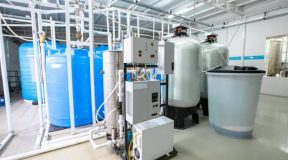We are probably all guilty of taking our central heating systems for granted. We just expect them to work and keep us cosy, so when problems do arise, they come as a nasty surprise. Having a little knowledge of how your heating system operates and some of the different components involved, can give homeowners the knowledge to manage maintenance requirements and know when to seek professional help.
Your boiler
The boiler is the main part of a central heating system, coming in many sizes and offering varying heat energy amounts, energy ratings and fuel types. For all help with Boiler Installation Gloucester, visit http://www.hprservicesltd.com/gloucester-boiler-installation-and-heating-systems/
The amount of energy produced by a boiler is measured in kilowatts and how much is produced inside your home is calculated by a professional gas engineer. Factors include the size of your home, the materials it is constructed from, how it laid out and how the boiler will be used.
Fuel Types
Not all boilers are the same and some can use different fuel types:
- Natural Gas – This is the burning of methane which is supplied by the gas mains in urban areas
- LPG – Stands for liquid petroleum gas, which is usually propane or butane
- Oil C – This is the burning of kerosene, the same used in plane fuel
- Oil D – This is mainly used in Aga’s and is the burning of gas oil
- Mineral fuels – The use of coal or its derivatives
- Biomass fuels – The burning of natural elements like logs, wood pellets or wood chippings
- Electrical – Similar to the operation of a kitchen kettle but on a much larger scale
Boiler Types
- System boiler – This type of boiler only provides central heating or heating and a store of hot water in a tank.
- Conventional boiler – This is the most basic and common type of boiler which simply burns fuel to create heat for either the central heating or the water.
- Condensing – When fuel is burnt, gases are released, and this boiler uses the heat from those gases which would otherwise have been wasted energy. Some of the resulting steam condenses into water.
- Combination boiler – As the name suggests, this boiler provides both central heating and instant hot water to the home.
Whichever system is currently in your property, or you’re looking to install, will greatly depend on how you intend to use the boiler, how much hot water you’ll need, how many people are occupying the property and the energy efficiency of the system. Boilers have a rating system called the SAP system. It stands for the Seasonal Efficiency Performance or the level of energy efficiency of a particular boiler and is graded from A to G. The grading works as follows:
- Band A means an efficiency of 90% and over
- Band B means a rate of 86%-90%
- Band C equals 82%-86% and
- Band D rates at between 78%-82%.
You may also like IFA Investment Decisions Come Under Increased Scrutiny






